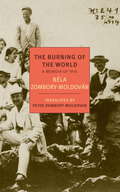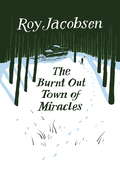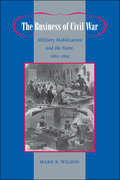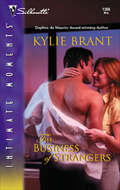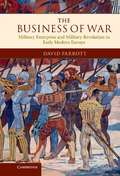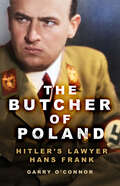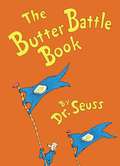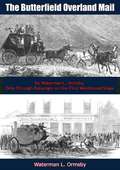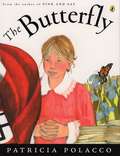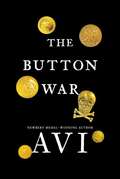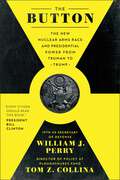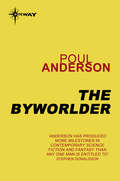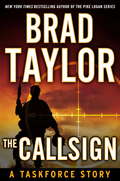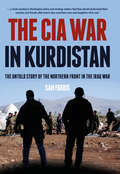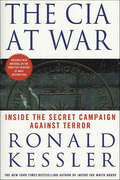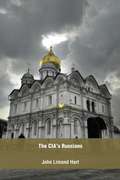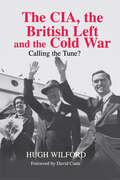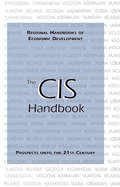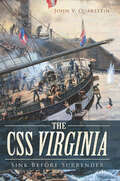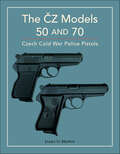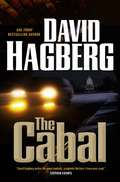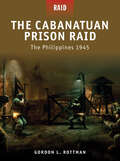- Table View
- List View
The Burning of the World
by Bela Zombory-Moldovan Peter Zombory-MoldovanPublishing during the 100th Anniversary of the First World War An NYRB Classics Original The budding young Hungarian artist Béla Zombory-Moldován was on holiday when the First World War broke out in July 1914. Called up by the army, he soon found himself hundreds of miles away, advancing on Russian lines and facing relentless rifle and artillery fire. Badly wounded, he returned to normal life, which now struck him as unspeakably strange. He had witnessed, he realized, the end of a way of life, of a whole world. Published here for the first time in any language, this extraordinary reminiscence is a powerful addition to the literature of the war that defined the shape of the twentieth century.
The Burnt-Out Town of Miracles
by Roy Jacobsen'A compact and compelling novel by an iconic Norwegian writer...[and] thanks to Don Bartlett and Don Shaw's crisp translation, we see it obliquely' - IndependentSet in Finland in 1939, this is the story of one man who remains in his home town when everyone else has fled, burning down their houses in their wake, before the invading Russians arrive. Timo remains behind because he can't imagine life anywhere else, doing anything else besides felling the trees near his home. This is a novel about belonging - a tale of powerful and forbidden friendships forged during a war, of unexpected bravery and astonishing survival instincts. The Burnt-Out Town of Miracles is not a novel about war, but about the lives of ordinary people dragged into war, each of whom only wants to find the path back home. Roy Jacobsen uses the dramatic natural landscape of light and darkness, fire-blazing heat and life-robbing cold to spectacular effect.
The Bush Administrations and Saddam Hussein
by Alex Roberto Hybel Justin Matthew KaufmanThe authors present a vital analysis of the foreign policy-making processes of the two Bush administrations prior to the attacks on Iraq. In a thorough comparison, they show how both presidents used historical analogies to evaluate information, relied on instinct to formulate decisions, and drew on moral language to justify their choices.
The Business of Civil War: Military Mobilization and the State, 1861–1865 (Johns Hopkins Studies in the History of Technology)
by Mark R. WilsonThis wide-ranging, original account of the politics and economics of the giant military supply project in the North reconstructs an important but little-known part of Civil War history. Drawing on new and extensive research in army and business archives, Mark R. Wilson offers a fresh view of the wartime North and the ways in which its economy worked when the Lincoln administration, with unprecedented military effort, moved to suppress the rebellion. This task of equipping and sustaining Union forces fell to career army procurement officers. Largely free from political partisanship or any formal free-market ideology, they created a mixed military economy with a complex contracting system that they pieced together to meet the experience of civil war. Wilson argues that the North owed its victory to these professional military men and their finely tuned relationships with contractors, public officials, and war workers. Wilson also examines the obstacles military bureaucrats faced, many of which illuminated basic problems of modern political economy: the balance between efficiency and equity, the promotion of competition, and the protection of workers' welfare. The struggle over these problems determined the flow of hundreds of millions of dollars; it also redirected American political and economic development by forcing citizens to grapple with difficult questions about the proper relationships among government, business, and labor. Students of the American Civil War will welcome this fresh study of military-industrial production and procurement on the home front—long an obscure topic.
The Business of Strangers
by Kylie BrantA WOMAN WITHOUT A PASTShe didn't know her name, didn't know her nationality. The newly manufactured "Rianna Kingsley" only knew that her martial-arts skills and weaponry and assassination techniques went far beyond the average person's....A MARK THAT BECAME A DEATH WARRANTThe men who'd tried to assassinate her all shared one common trait: a tattoo of a winged horse, exactly like the one on her ankle. Where had it come from--and what did it mean to her survival?A MAN WHO WAS MORE THAN A STRANGERIt was dangerous for Rianna to share too much with anyone--much less the criminal hired to kill her--but she couldn't resist Jake Tarrance's arms, his bed. With her shadowy past hot on her heels, would Rianna's business with Jake be passionate...or deadly?
The Business of War: Military Enterprise and Military Revolution in Early Modern Europe
by David ParrottThis is a major new approach to the military revolution and the relationship between warfare and the power of the state in early modern Europe. Whereas previous accounts have emphasized the growth of state-run armies during this period, David Parrott argues instead that the delegation of military responsibility to sophisticated and extensive networks of private enterprise reached unprecedented levels. This included not only the hiring of troops but their equipping, the supply of food and munitions, and the financing of their operations. The book reveals the extraordinary prevalence and capability of private networks of commanders, suppliers, merchants and financiers who managed the conduct of war on land and at sea, challenging the traditional assumption that reliance on mercenaries and the private sector results in corrupt and inefficient military force. In so doing, the book provides essential historical context to contemporary debates about the role of the private sector in warfare.
The Butcher of Poland: Hitler's Lawyer Hans Frank
by Garry O'ConnorThe life of the Bavarian Hans Frank, one of the ten war criminals hanged at Nuremburg in 1946, who converted to Catholicism before he died, has not received the full attention the world has given to other Nazi leaders. In many ways he warrants it more. His life symbolises Germany's hubristic and visionary ambition to an alarming degree much better than anyone else's, perhaps because he was an intellectual of the highest calibre: ‘Can’t they see,’ he said of his fellow accused at Nuremberg, ‘that this is a horrible tragedy in the history of mankind, and that we are the symbols of an evil that God is brushing aside?’ As he recognised by the end he was a primary - if not the exemplary - symbol of evil, his remorse, self-pity, and arrogance knew no bounds as they vied with his contrition.Author Garry O'Connor brings his skills as a playwright, biographer and novelist to this harrowing account of Histler's lawyer, the man who formalised the Nazi race laws.
The Butter Battle Book
by Dr SeussDr. Seuss chronicles the feud between the Yooks and the Zooks from slingshots through sophisticated weaponry, until each side has the capacity to destroy the world.
The Butterfield Overland Mail: by Waterman L. Ormsby, Only Through Passenger on the First Westbound Stage (The\huntington Library Classics Ser.)
by Waterman L. OrmsbyThis is the classic firsthand account by Waterman L. Ormsby, a reporter who in 1858 crossed the western states as the sole through passenger of the Butterfield Overland Mail stage on its first trip from St. Louis to San Francisco. Ormsby’s reports, which soon appeared in the New York Herald, are lively and exciting. He describes the journey in close detail, giving full accounts of the accommodations, the other passengers, the country through which they passed, the dangers to which they were exposed, and the constant necessity for speed.“A most interesting account of the first westbound trip of an overland mail stage.”—Southern California Historical Society Quarterly“The best narrative of the trip and one of the best accounts of western travel by stage.”—Pacific Historical Review“If other travelers had been as careful and observant as Ormsby we should know vastly more about our country and the ways of our fathers than we do...The book is fascinating. It will prove interesting to all who care for travelogues, the history of the West, and particularly to those interested in our economic history.”—Journal of Economic History
The Butterfly
by Patricia PolaccoEver since the Nazis marched into Monique's small French village, terrorizing it, nothing surprises her, until the night Monique encounters the little ghost sitting at the end of her bed. She turns out to be a girl named Sevrine, who has been hiding from the Nazis in Monique?s basement. Playing after dark, the two become friends, until, in a terrifying moment, they are discovered, sending both of their families into a nighttime flight.
The Button War: A Tale of the Great War
by AviTwelve-year-old Patryk knows little of the world beyond his tiny Polish village; the Russians have occupied the land for as long as anyone can remember, but otherwise life is unremarkable. Patryk and his friends entertain themselves by coming up with dares -- some more harmful than others -- until the Germans drop a bomb on the schoolhouse and the Great War comes crashing in.
The Button: The New Nuclear Arms Race and Presidential Power from Truman to Trump
by William J. Perry Tom Z. CollinaThe President has the power to end the world in minutes. Right now, no one can stop him. Since the Truman administration, America has been one "push of a button" away from nuclear war—a decision that rests solely in the hands of the President. Without waiting for approval from Congress or even the Secretary of Defense, the President can unleash America's entire nuclear arsenal. Almost every governmental process is subject to institutional checks and balances. Why is potential nuclear annihilation the exception to the rule? For decades, glitches and slip-ups have threatened to trigger nuclear winter: misinformation, false alarms, hacked warning systems, or even an unstable President. And a new nuclear arms race has begun, threatening us all. At the height of the Cold War, Russia and the United States each built up arsenals exceeding 30,000 nuclear weapons, armed and ready to destroy each other—despite the fact that just a few hundred are necessary to end life on earth. From authors William J. Perry, Secretary of Defense in the Clinton administration and Undersecretary of Defense for Research and Engineering in the Carter administration, and Tom Z. Collina, the Director of Policy at Ploughshares Fund, a global security foundation in Washington, DC, The Button recounts the terrifying history of nuclear launch authority, from the faulty 46-cent microchip that nearly caused World War III to President Trump's tweet about his "much bigger & more powerful" button. Perry and Collina share their firsthand experience on the front lines of the nation's nuclear history and provide illuminating interviews with former President Bill Clinton, former Secretary of Defense Jim Mattis, Congressman Adam Smith, Nobel Peace Prize winner Beatrice Fihn, senior Obama administration officials, and many others. Written in an accessible and authoritative voice, The Button reveals the shocking tales and sobering facts of nuclear executive authority throughout the atomic age, delivering a powerful condemnation against ever leaving explosive power this devastating under any one person's thumb.
The Byworlder
by Poul AndersonEarly in the 21st century the world is enjoying an uneasy peace, with a distinct division between the "straight" society and the various fringe groups that go to form the Byworld.Tension grows, however, over the presence of an alien spaceship that is orbiting the world, bearing a single occupant - the Sigman. It appears that no-one knows how to communicate with the Sigman; no-one knows the purpose of his visit. Until two people - one "straight" and the other a Byworlder - solve the problems involved; and in so doing trigger off a series of violent plots and counterplots that mount to a frenetic climax.
The CALLSIGN
by Brad TaylorIn the first ever short story by Retired Delta Force officer Brad Taylor, the stakes couldn't be higher as operator Pike Logan goes after the first Taskforce target leading a team he can't fully trust. Includes an exclusive preview of Brad Taylor's hotly anticipated third Pike Logan novel, Enemy of Mine, coming January 15, 2013. Commissioned at the highest level of the U.S. government, and designed to operate outside the bounds of U.S. law, a new counter-terrorist unit known as the Taskforce has just been formed, but not fully tested. Until now. Pike Logan has been given a team of operators drawn from the CIA's National Clandestine Service and the military's Special Operations Forces without any say in selecting the men on which he must depend. While executing a full mission profile exercise on U.S. soil, a target of opportunity appears before the Taskforce is deemed mission capable. Forced to execute, Pike and his team are sent to Yemen to track their first real target. The future of the Taskforce depends on their success, but when Pike is challenged by one of his own, their clear-cut mission teeters on the brink of disaster. The price of failure will reverberate much deeper than the loss of the target - straight into the presidency itself. Propulsive, compelling, and told with unparalleled realism, The Callsign brings readers new insight into the origins of the Taskforce as they execute the first Omega operation in a relentless and action-packed short story.
The CALLSIGN
by Brad TaylorIn the first ever short story by Retired Delta Force officer Brad Taylor, the stakes couldn't be higher as operator Pike Logan goes after the first Taskforce target leading a team he can't fully trust. Includes an exclusive preview of Brad Taylor's hotly anticipated third Pike Logan novel, Enemy of Mine, coming January 15, 2013. Commissioned at the highest level of the U.S. government, and designed to operate outside the bounds of U.S. law, a new counter-terrorist unit known as the Taskforce has just been formed, but not fully tested. Until now. Pike Logan has been given a team of operators drawn from the CIA's National Clandestine Service and the military's Special Operations Forces without any say in selecting the men on which he must depend. While executing a full mission profile exercise on U.S. soil, a target of opportunity appears before the Taskforce is deemed mission capable. Forced to execute, Pike and his team are sent to Yemen to track their first real target. The future of the Taskforce depends on their success, but when Pike is challenged by one of his own, their clear-cut mission teeters on the brink of disaster. The price of failure will reverberate much deeper than the loss of the target - straight into the presidency itself.Propulsive, compelling, and told with unparalleled realism, The Callsign brings readers new insight into the origins of the Taskforce as they execute the first Omega operation in a relentless and action-packed short story.
The CIA War in Kurdistan: The Untold Story of the Northern Front in the Iraq War
by Sam Faddis&“A valuable history [and] a stark warning to Washington policy and strategy makers.&” —James Stejskal, former US Army Special Forces and CIA officer In 2002, Sam Faddis was named to head a CIA team that would enter Iraq to facilitate the deployment of follow-on conventional military forces numbering over 40,000 American soldiers. This force, built around the 4th Infantry Division, would, in partnership with Kurdish forces and with the assistance of Turkey, engage Saddam&’s army in the North as part of a coming invasion. Faddis expected to be on the ground in Iraq within weeks, the entire campaign likely to be over by summer. Over the course of the next year, virtually every aspect of that plan for the conduct of the war in northern Iraq fell apart. The 4th Infantry Division never arrived, nor did any other conventional forces in substantial number. The Turks not only refused to provide support, they worked overtime to prevent the United States from achieving success. And an Arab army that was to assist US forces fell apart before it ever made it to the field. Alone, hopelessly outnumbered, short on supplies, and threatened by Iraqi assassination teams and Islamic extremists, Faddis&’s team, working with Kurdish peshmerga, miraculously paved the way for a brilliant and largely bloodless victory in the North and the fall of Saddam&’s Iraq. That victory, handed over to Washington and the Department of Defense on a silver platter, was then squandered. The decisions that followed would lead to catastrophic consequences that continue to this day. This is the story of the brave and effective team of men and women who overcame massive odds to help end the nightmare of Saddam&’s rule. It is also the story of how incompetence, bureaucracy, and ignorance threw that success away and condemned Iraq and the surrounding region to chaos
The CIA at War: Inside the Secret Campaign Against Terror
by Ronald KesslerA “colorful and fascinating” history of the CIA and its clandestine activities overseas from the Cold War to 9/11 and the War on Terror (The Washington Post Book World).Investigative reporter Ronald Kessler draws on his unprecedented access to CIA insiders to tell the full story of the agency and its spymasters. Kessler interviewed numerous current and retired CIA officers, including George Tenet and other top officials. He recounts the story of how Tenet transformed the CIA from a pathetic, risk averse outfit to one that has rounded up thousands of terrorists since 9/11.The CIA at War discloses highly sensitive information about its unorthodox methods, its stunning successes, and its shocking failures. The book explores whether the CIA can be trusted, whether its intelligence is politicized, and whether it is capable of winning the war on terror. In doing so, the book weaves in the history of the CIA and how it really works.From the CIA’s intelligence failure of 9/11 to its critical role in preventing further attacks, The CIA at War tells a riveting, unique story about a secretive, powerful agency and its confrontation with global terrorism.
The CIA's Greatest Hits
by Mark ZepezauerThis book provides concise descriptions of forty-eight of the CIA's most heinous crimes-- and that's far from a complete list.
The CIA's Russians
by John Limond HartDuring the Cold War a number of high-ranking Soviet citizens spied for the CIA, providing the United States with valuable information while putting themselves and their families in great danger. In this book a seasoned CIA field operator and station chief looks at what drove these agents to betray their own country. Unlike many authors who write about spies, John Hart knows the espionage profession first-hand, and his penetrating analysis of the motivations involved is based on top-secret operational files. Four major Soviet agents - Yuri Nosenko, the dissident KGB agent who disclosed the bugs in the American Embassy in Moscow and claimed the KGB had no connection to the assassination of President Kennedy; Oleg Penkovsky, one of the West's most important agents who was eventually executed by the Soviets; and Pyotr Popov and Mikhail - are examined in depth, and the cases of six others are discussed. The stories of each reveal a great deal about the realities of the intelligence craft. Hart became so intrigued with the reasons behind the agents' spying activities that he asked then-CIA director Richard Helms for time off to investigate the cases. For a full year he searched for common denominators in the personalities of these Soviet moles that would explain their willingness to take such life-threatening risks. He had complete access to their operational files, including psychological profiles. He studied not only documentation of the material the agents provided but also their own accounts of their thoughts and emotions when they divulged secrets that could damage their homeland. This behind-the-headlines look at what makes spies tick is aimed at every reader with a penchant for good spy stories.
The CIA, the British Left and the Cold War: Calling the Tune? (Studies in Intelligence)
by Hugh WilfordShortly after it was founded in 1947, the CIA launched a secret effort to win the Cold War allegiance of the British left. Hugh Wilford traces the story of this campaign from its origins in Washington DC to its impact on Labour Party politicians, trade unionists, and Bloomsbury intellectuals
The CIS Handbook (Regional Handbooks of Economic Development #Vol. 4)
by Patrick Heenan Monique Lamontagne Ronald J. Hill Bogdan SzajkowskiFirst Published in 2000. Routledge is an imprint of Taylor & Francis, an informa company.
The CSS Virginia: Sink Before Surrender (Civil War Ser.)
by John V QuarsteinThis history of the Confederate Navy&’s ironclad warship &“ will likely be the definitive single title on the CSS Virginia&” (Civil War News). When the CSS Virginia—formerly the USS Merrimack—slowly steamed down the Elizabeth River toward Hampton Roads on March 8, 1862, the tide of naval warfare turned from wooden sailing ships to armored, steam-powered vessels. Little did the ironclad&’s crew realize that their makeshift warship would achieve the greatest Confederate naval victory. The trip was thought by most of the crew to be a trial cruise. Instead, the Virginia&’s aggressive commander, Franklin Buchanan, transformed the voyage into a test by fire that forever proved the supreme power of iron over wood. The Virginia&’s ability to beat the odds to become the first ironclad to enter Hampton Roads stands as a testament to her designers, builders, officers, and crew. Virtually everything about the Virginia&’s design was an improvisation or an adaptation, characteristic of the Confederacy&’s efforts to wage a modern war with limited industrial resources. Noted historian John V. Quarstein recounts the compelling story of this ironclad underdog, providing detailed appendices, including crew member biographies and a complete chronology of the ship and crew. Includes illustrations
The CZ Models 50 and 70: Czech Cold War Police Pistols
by James D. BrownIn the West, these pistols were unavailable and little understood for decades. Now they are widely available to purchase, and this book fills the information gap.
The Cabal (Kirk McGarvey Series #14)
by David HagbergIn Washington, CIA operative Todd Van Buren meets with a Washington Post investigative reporter who has uncovered strong evidence that a powerful lobbyist has formed a shadowy group called the Friday Club, a cabal whose members include high-ranking men inside the government: a White House adviser, a three star general at the Pentagon, deputy secretaries at the State Department, Homeland Security, the FBI and even the CIA. That afternoon Van Buren, son-in-law of the legendary spy Kirk McGarvey, is brutally gunned down and that evening, the reporter and his family are killed, all traces of the shadow group erased. A grief-stricken McGarvey is drawn into the most far-reaching and bizarre investigation of his career, the stakes of which could destabilize the US government and shake the foundations of the world financial order.
The Cabanatuan Prison Raid - The Philippines 1945
by Gordon Rottman Mariusz KozikOn 27 January 1945 the 6th Ranger Battalion and the 6th Army Special Reconnaissance Unit (the Alamo Scouts) began the most dangerous and important mission of their careers to rescue 500 American, British and Dutch prisoners-of-war held at a camp near Cabanatuan. This daring plan was fraught with difficulties - the rangers had to struggle with harsh jungle terrain, 30 miles behind enemy lines against a far larger force, knowing that if their secret mission was leaked, the POWs would be massacred by their captors. Yet, with the help of a Filipino guerilla force, they managed to liberate 513 prisoners and kill 225 Japanese in 15 minutes, while only suffering two losses themselves. Relive the dramatic rescue in this action-packed account, complete with bird's eye view and battlescene artwork. Gordon Rottman details the build-up to and execution of the operation, analyzing the difficulties faced and the contribution made by the guerrillas. This is a story not only of extraordinary military success but a compelling tale of courage in the face of overwhelming odds.
